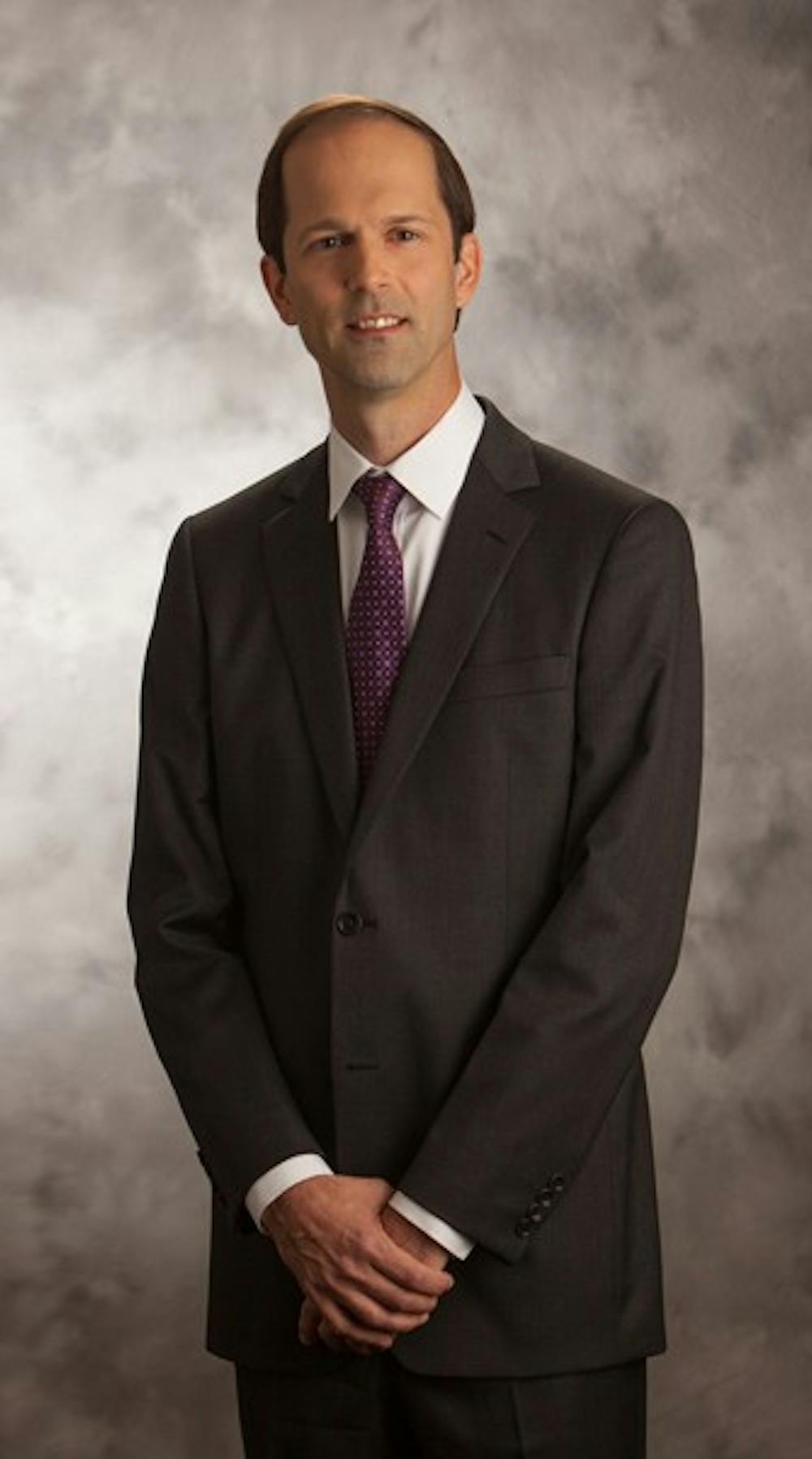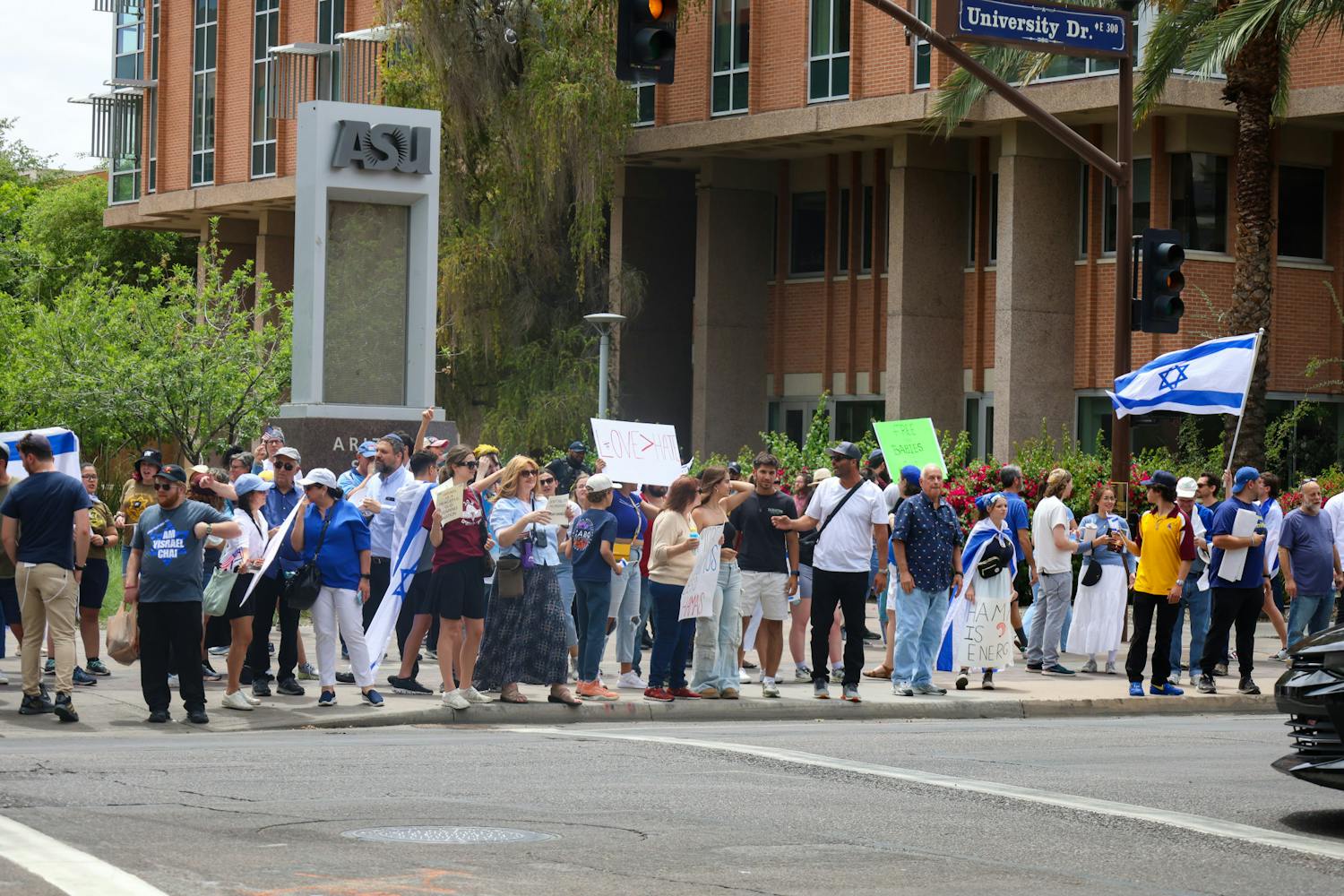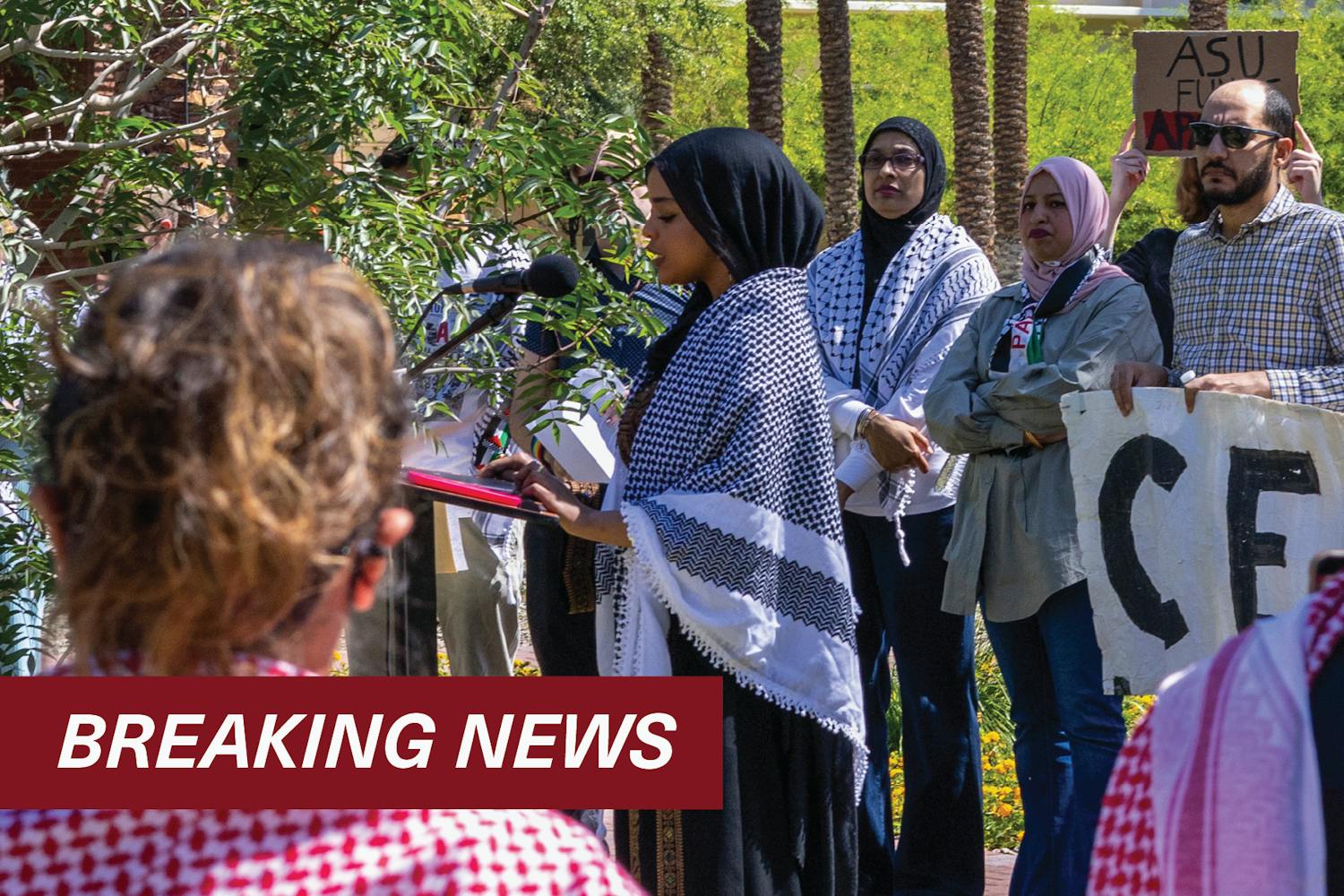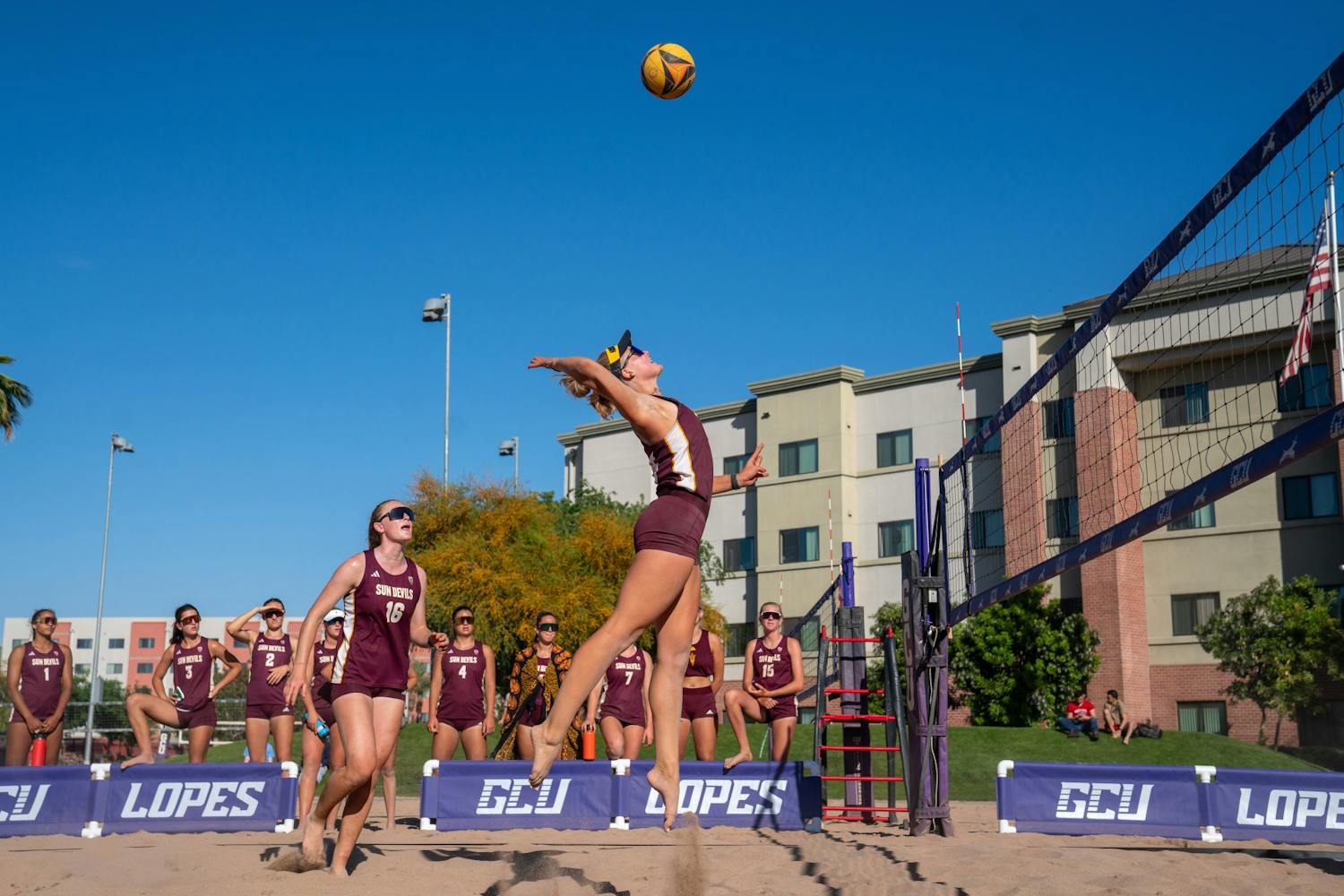Three University professors will be recognized for their work with the military by the Alumni Association on Thursday evening at the 2013 Founders' Day celebration.
 (Photo Courtesy of Steven Corman)
(Photo Courtesy of Steven Corman)Steven Corman, a professor in the Hugh Downs School of Human Communication; Melissa Pritchard, professor of English and women's studies and Stephen Pratt, an associate professor in the School of Life Sciences, are receiving the Faculty Achievement Service Award, Faculty Achievement Teaching Award and Research Faculty Achievement Award, respectively.
All three professors were surprised to receive their awards.
"It's an honor," Corman said. "We kind of just do our work and go on, and then one day someone calls you up and recognizes you for it."
For several years, Corman has traveled and participated in presentations for the military on topics such as terrorist organizations' tactics, the U.S. Department of State, NATO and foreign governments.
After Sept. 11, 2001, Corman was approached by the Joint Warfare Analysis Center to participate in a series of workshops. At the time, Corman was studying activity networks, which looks into the way groups work together to complete a task.
"I went and looked out the windows to make sure there were no black helicopters or black vans, and there weren't," Corman said. "I emailed (the representative from the Joint Warfare Analysis Center) back and said, 'Are you sure you have the right guy?'"
After leading the workshops, Corman became the director of the Center for Strategic Communication at ASU, which works to combat terrorism with research.
Corman is currently researching master narratives — cultural stories that are widely known and are being applied to current situations — and how Islamic extremists are using these stories, Corman said.
"They can use those to frame things that are happening in the present day and encourage people to align their personal narratives with those local stories and support the extremists," Corman said.
Corman said that he has continued assisting government agencies and allies through his research because he believes in the American cause.
"Right after the 9/11 attacks, I was wondering, like a lot of other people, what I could do to contribute to getting these guys that had done such bad things for our country," Corman said. "I got my chance, and it just happened to be things I knew about."
Melissa Pritchard is receiving the Faculty Achievement Teaching Award for her work in creating a rich learning environment for her students.
 (Photo Coutesy of ASU College of Liberal Arts and Sciences)
(Photo Coutesy of ASU College of Liberal Arts and Sciences)In January 2009, Pritchard worked as an embedded journalist with a group of female soldiers in Afghanistan who were heavily involved in humanitarian work with the local villages.
Pritchard met 21-year-old soldier and aspiring writer Ashton Goodman in Afghanistan. Goodman would become like a student or daughter to Pritchard, she said.
"When I first met (Goodman), she terrified me, because she seemed like the stereotype of a tough soldier," Pritchard said. "It turned out that was all kind of a facade to get her through. She was a sweetheart."
On May 26, 2009, after Pritchard returned home from Afghanistan, Goodman was killed by an improvised explosive device as she drove her commander to Bagram Airfield.
Pritchard began working on an in-depth piece on Goodman's life and her experiences in Afghanistan. The O Magazine article, titled "Finding Ashton, A Soldier's Story," was published almost a year after Goodman's death.
"There was a huge response to the story and I thought that was the peak, the pinnacle," Pritchard said. "But a few days after it was out, I thought, 'I'm not done yet.'"
In 2010, Pritchard established the Ashton Goodman Fund to benefit the Afghan Women's Writing Project, an organization that provides supplies and mentors to women in Afghanistan.
In December 2010, Pritchard gave a lecture about Goodman to roughly 1,000 Air Force Officers in Dayton, Ohio. Goodman's story has continued to touch lives, as the Ashton Goodman Fund raises money and as others read what Pritchard has written.
Pritchard said Goodman's story carries on because of the unique perspective it provides on the war.
"I think what was powerful was I put a female face on the war, a young person who had died. She was brilliant, very smart, witty, compassionate," Pritchard said. "She was an extraordinary young woman."
Stephen Pratt will be receiving the Research Faculty Achievement Award for his work in studying social aspects of insect colonies, where his work is being applied to robotics.
 (Photo Courtesy of ASU Alumni Association)
(Photo Courtesy of ASU Alumni Association)Pratt is studying how ants can function as a whole without a central leader while managing to find places to build, locating food and working as a unit.
This work is being applied to engineering and specifically swarm robotics, which is using lots of simple robots and getting them to work with each other, Pratt said.
"You think of a robot as sort of a humanoid thing, but just a solitary machine that can carry out complex behavior," Pratt said. "What engineers would like them to do is act more like ants: to do their task cooperatively without leaders."
Pratt is currently working on a research project — funded by the Office of Naval Research — called Heterogeneous Unmanned Networked Teams, or HUNT. The project is bringing together engineers, mathematicians, biologists and social scientists to apply how natural systems coordinate and apply that to robotics.
"(Ants) are poorly informed. They don't see the big picture, but their individual behavior is very sophisticated," he said. "The idea of HUNT was to consider teams of relatively clever animals that coordinate in effective ways."
Pratt, who has been studying how ants coordinate since he was doing his undergraduate work, said he was pleasantly shocked to receive the award.
"I think I'm not alone in that I would never have predicted (studying ants) would have relevance to national defense," Pratt said. "But since we got into this biomimicry research strategy, we are pleased to find out the work we do is of great interest to those trying to solve those defense-related problems."
The honorees will be receive their awards at the Arizona Biltmore Resort and Spa and be honored in a ceremony along with Pat Tillman and five ASU alumni who have served in the military.
Reach the reporter at sgslade@asu.edu or follow her on Twitter @shelbygslade




